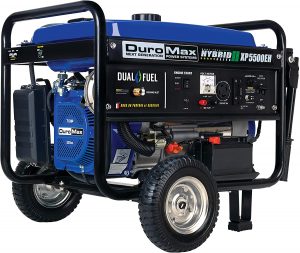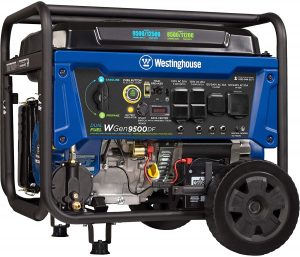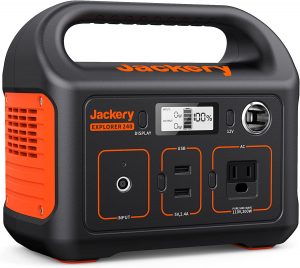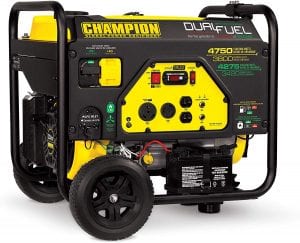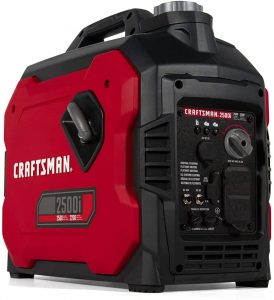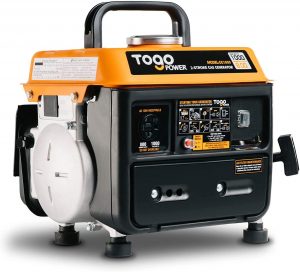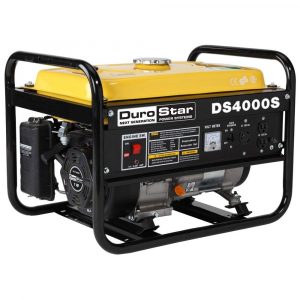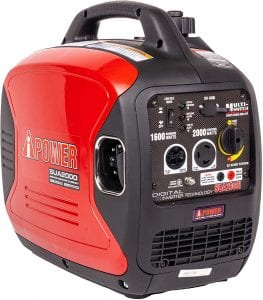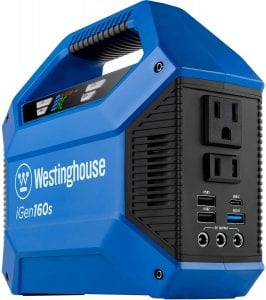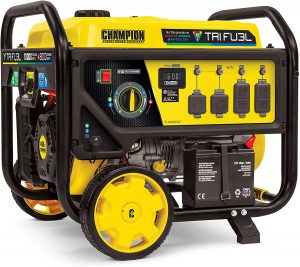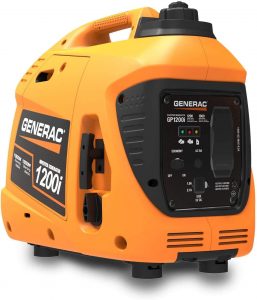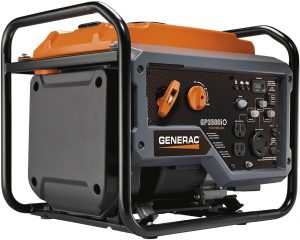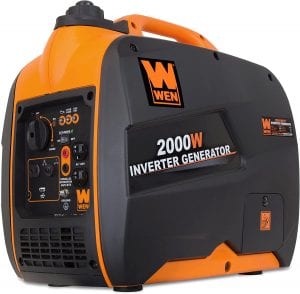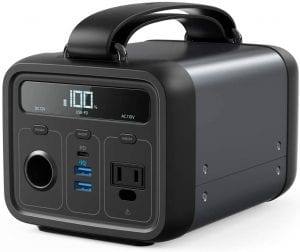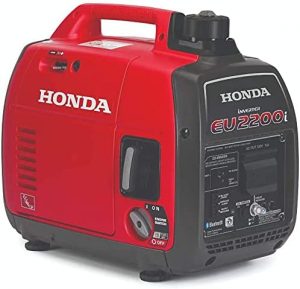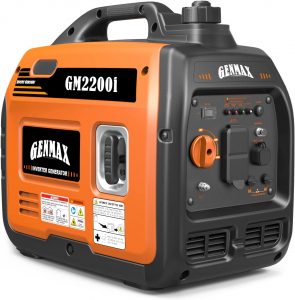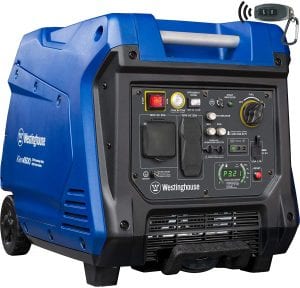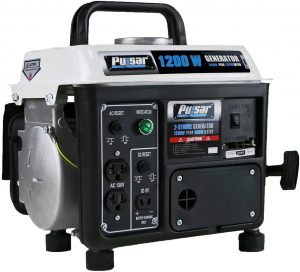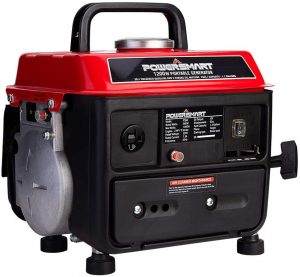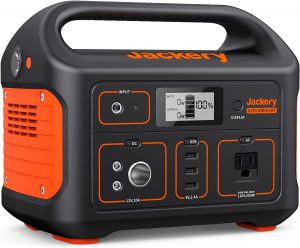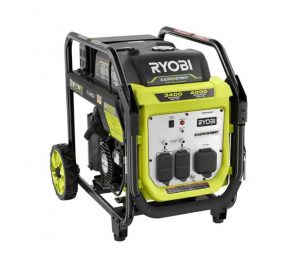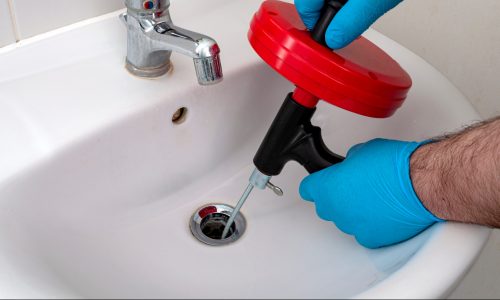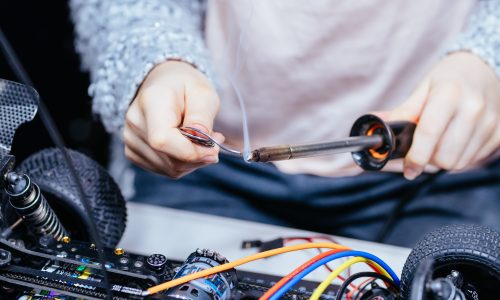Best Generators
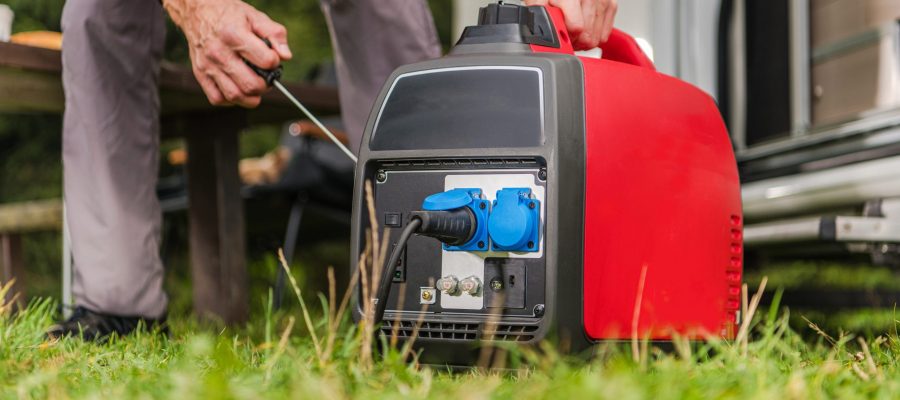
Our Review Process
Don't Waste Your Money is focused on helping you make the best purchasing decision. Our team of experts spends hundreds of hours analyzing, testing, and researching products so you don't have to. Learn more.
Our Picks For The Top Gas Generators
- 1. DuroMax XP5500EH Dual-Fuel Gas Generator
- 2. Jackery Explorer 300 Portable Power Station
- 3. Westinghouse WGen9500DF Remote Start Gas Generator
- 4. Champion 3-Mode Portable Generator, 3800-Watt
- 5. CRAFTSMAN 2500i Fully Enclosed Gas Generator
- 6. Togopower GG1000 Lightweight Mini Gas Generator
- 7. Durostar EPA Approved Portable Generator, 3300-Watt
- 8. A-iPower SUA2000iV Ultra-Quiet Inverter Portable Generator, 2000-Watt
- 9. Westinghouse Lithium Portable Solar Power Generator, 100-Watt
- 10. Champion Power Equipment 100416 Tri-Fuel Technology Gas Generator
- 11. Generac GP3000i Super Quiet Inverter Portable Generator, 3000-Watt
- 12. Generac GP3500iO Built-In USB Outlets Gas Generator
- 13. WEN 56200i Super Quiet Inverter Portable Generator, 2000-Watt
- 14. Jackery Rechargeable Portable Generator, 240-Watt
- 15. Anker Powerhouse Silent Rechargeable Portable Generator, 100-Watt
- 16. Honda EU2200i Lightweight Portable Generator, 2200-Watt
- 17. GENMAX GM2200i Low Noise Gas Generator
- 18. Westinghouse iGen4500 Fuel Efficient Portable Generator, 4500-Watt
- 19. Pulsar PG1202SA Compact Portable Gas Generator
- 20. PowerSmart PS50 High Fuel Efficiency Gas Generator
- 21. Jackery Long-Lasting Portable Battery Generator, 500-Watt
- 22. Ryobi 7000W EFI Quick Release Handle Portable Generator, 4000-Watt
The best thing about this generator is that you can choose between two different fuel types, gasoline or propane. This gives you added flexibility when you need to power appliances or tools.
Can Use Two Types of FuelThis sturdy generator can handle whatever you throw at it.
Weighing in at only 7 pounds, this generator is light enough to carry anywhere. Take it camping, on road trips or other outdoor excursions to make sure your small electronics are always fully charged. It also features a powerful LED flashlight with SOS mode.
Compact and LightweightThis is the ideal generator for powering small devices in the big outdoors.
Able to provide up to 9,500 watts to run demanding equipment, this generator supports both liquid propane and natural gas. There are multiple outlet types for flexibility. You can also conveniently start it with a remote.
Powerful and FlexibleYou'll find this powerful generator useful for running several important home appliances and devices during a power outage.
This portable generator offers an easy-to-move compact generator for all your electrical needs when outside the house. The large handle makes it easy to carry this product from place to place. In addition, it features outlets for AC, auxiliary cables, USB ports and a DC port.
Take With You EverywhereNo matter what type of cord you need to plug in, this portable generator has the input for it all.
Buying Guide
A gas generator is useful for having access to electricity if the power goes out or you’re not located near a power source. Not only can you use one during an emergency, but they’re also good for running equipment when camping or doing outdoor projects. Whether you need to power just a few power tools or most of your home’s appliances, you’ll likely find an option that fits your needs.
You’ll come across conventional and inverter gas generators that can both provide enough power, but there are some differences to consider. For example, you’ll need to think about the types of outlets, fuel options, portability, noise and energy use.
Conventional generators usually have outlets for both 240-volt and 120-volt equipment, and may support natural gas or liquid propane along with regular gasoline. While durable, they tend to be loud, large, heavy and not use energy very efficiently. Inverter gas generators, on the other hand, usually don’t support other fuel sources or 240-volt equipment. However, they tend to run more quietly, use energy efficiently, be safer for use with electronics and weigh less than conventional generators for better portability.
You’ll need to understand what you’ll use with the gas generator so you choose one with the right number of running watts. Basic models usually support at least 1,000 watts to power a few items such as a power tool, coffee maker, TV or lamp, while 7,500-watt generators can run several home appliances simultaneously. If you want a whole-home option, consider 10,000-watt or higher models. You should also ensure the generator can handle the starting watts required to get all your items running.
Along with considering the power, check the generator’s stated run time considering it has a full fuel tank. This is usually stated as the number of hours the generator will provide power at half the maximum load. For example, a model might run for eight hours with a half load but only four with a full load.
When selecting a gas generator, make sure it has the features you need. This includes having the right types and numbers of outlets, including any USB ports you might prefer for charging gadgets. You might also prefer models with electronic features such as remote start capability, an electric startup option, an informative display and a carbon monoxide sensor. It’s also useful to get a model that can automatically shut off if a safety or mechanical issue occurs.
What to Look For
- If you don’t use your gas generator safely, carbon monoxide can become a problem. Make sure you never use the generator indoors and instead have it outside in the open. It’s recommended to keep it 20 feet away or more from your building to keep the exhaust from coming in.
- Make sure that you protect your generator from the elements. This means not using it when it’s raining or snowing unless you have it under a canopy or use a suitable operational cover. And when you’re not using the generator, either store it inside your garage or put a protective cover on it; however, be sure to let it cool down first.
- If you have problems getting your gas generator to start, make sure you’ve followed the manufacturer’s steps first. You can then start checking for potential issues such as a bad battery, insufficient fuel or oil, or clogs in parts such as the air filter and carburetor. Consider getting a mechanic’s help with troubleshooting and repairs.
- If your generator is too noisy, make sure it sits on a stable surface and try soft ground if possible. Other options include building some kind of sound deflector or installing a silencer.
- Just like with your car, you’ll need to maintain your gas generator to keep it in good shape. This can include changing its oil within the first 20 to 25 hours of the first use and then every 50 to 60 hours of use after. In addition, you should also periodically run the generator so that you know it still works properly and recharge any battery inside. Lastly, don’t leave gas in the tank when you’re storing your generator.
- You can minimize your fuel costs if you only run the essentials and try to avoid plugging in demanding appliances such as fridges, air conditioners and space heaters. Proper maintenance also helps avoid wasting fuel from inefficiency.
- You’ll likely want to have some gasoline stored for use with your generator, but you must follow safety procedures. First, use an approved container and avoid overfilling it. Don’t store your gas cans somewhere that can get really hot or where the gas can encounter fire. Plus, place all cans in a location not attached to your home.
- Don’t refuel your gas generator while it’s still running. Shut it down and wait until it has cooled off.
More to Explore
If you want to use your generator as a backup home power source, you might be surprised to learn that manufacturers usually recommend against running cables into your home to power items. Not only can running cables through doors and windows cause the generator’s fumes to come inside, but it can also create a fire hazard and make it easy for burglars to get in.
Instead, you can have an electrician install a transfer switch in your home. This will allow the generator to safely take over as your home’s primary power source during an outage. You can choose between manual and automatic options.
When needing to just power items outdoors, you can simply plug devices directly into the generator’s power outlets or use extension cords. Just make sure that any extension cord is designed for outdoor use and properly rated for use with your generator.

